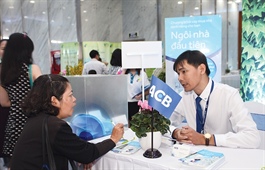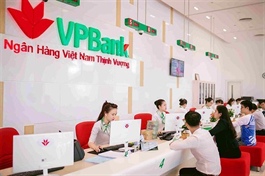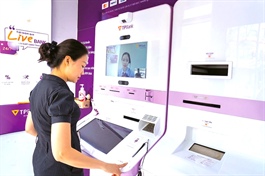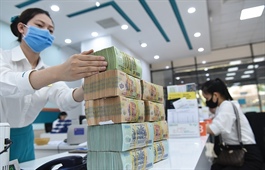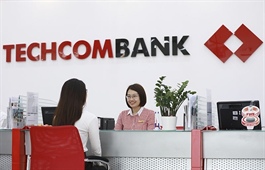Tax filing extension a modicum of relief
Tax filing extension a modicum of relief
While welcoming the government’s new supporting policy, foreign-invested enterprises in Vietnam are seeking more assistance to survive the COVID-19 storm and spur recovery.
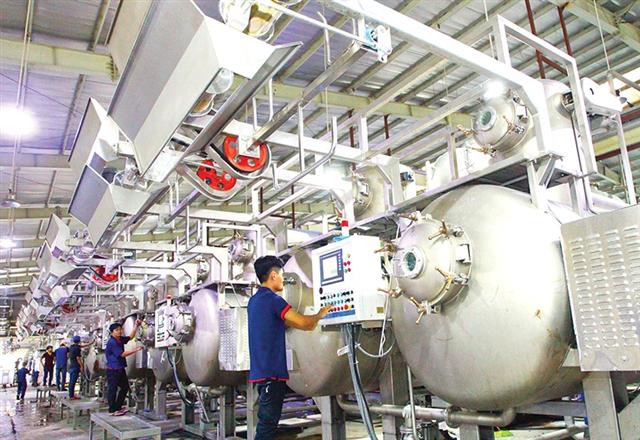
Foreign investors welcomed tax extensions but say they are not entirely out of the woods yet. Photo: Le Toan
|
The government’s issuance of Decree No.52/2021/ND-CP extending time limits for payment of VAT, corporate income tax (CIT), personal income tax, and land rental in 2021 was highly welcomed by international businesses, saying that the new policy comes at a right time to offer support.
Nakajima Takeo, director of the Hanoi Office of the Japan External Trade Organization (JETRO), told VIR, “The Japanese business community welcomed the initiatives by the Vietnamese government. Extended timelines for VAT and corporate tax payment will be helpful for the firms.”
Similarly, Hong Sun, vice chairman of the Korea Chamber of Business in Vietnam (KorCham), added Decree 52 is still fairly new to South Korean businesses, but they are expecting much from it. “Vietnam’s supporting policies are not as high as those in the United States, the United Kingdom, Japan, and South Korea where the governments give direct support for small firms. Vietnam, instead, offers an extension of time limits for tax payment so that businesses can be alive, stand firm and recover, and then they can make tax payments.”
Not only Japanese and South Korean investors, other foreign-invested enterprises (FIEs) are waiting to benefit from the new supporting package which costs an estimated VND115 trillion ($5 billion). For Singaporean businesses which rank first among Vietnam’s foreign investors in the first four months of 2021, making up 39.6 per cent of the country’s total, it is seen as a good signal.
Jeffrey Wandly, vice president of the Singapore Business Association Vietnam said, “We support the Vietnamese government in their broad-based approach to supporting businesses during this difficult time, especially since Decree 52 covers foreign businesses across many sectors.”
The new decree has wide coverage, including small- and micro-sized enterprises, easing their concerns over personal income tax and land rental. The extension is about 3-6 months depending on kinds of tax. Decree beneficiaries shall be applicable to enterprises operating in agro-forestry-fishery, food processing, manufacturing, textiles, crude oil and natural gas exploitation, water supply and treatment, and logistics among others.
However, FIEs are expecting some others to survive challenging times. Last year, a JETRO survey revealed that 20 per cent of Japanese investors wanted financial support from the Vietnamese government. Also, more companies wanted a “business as usual” policy if possible. Some 90 per cent of respondents hoped for the early lifting of the international flight and immigration restrictions.
Takeo fron JETRO admitted that recently, companies complained that visa and work permits are more difficult to obtain. “To promote foreign investment and grow the Vietnamese economy, the legitimate operation of allowing businesspeople to enter the country is indispensable,” he insisted.
Sun of KorCham added that South Korean businesses have benefited from the Vietnamese government’s supporting policies issued in the past. “However, a lot of small and medium-sized ones still find it difficult to enjoy the support.”
He elaborated that since April, entrance into Vietnam has been more strictly controlled, and the extension of quarantine time also causes difficulties for South Koreans. Moreover, South Korean businesses in Vietnam who work in exports are facing a challenge due to a shortfall of empty containers. “We are expecting the government and the Ministry of Transport to have a solution to this so as to facilitate export activities.”
Vietnam is an appealing destination for foreign investors, proved by strong business confidence among Europeans, South Koreans, Japanese, and others. According to JETRO, it receives hundreds of inquiries from Japanese businesses each year. In 2020, about two-thirds of contacts were from investors located in Vietnam, and the rest from Japan. In 2019, before the pandemic, two-thirds were from Japan.
“Although lower, we still keep receiving many questions from Japan about how to start a new business in Vietnam as Japanese investors maintain a strong interest in doing business here,” Takeo said. “The purposes of Japanese investment are to set up a manufacturing base to export products to the global markets and to explore the growing Vietnamese market.”
Regarding possible impacts of the pandemic on inflows of Japanese business and investment activities in Vietnam, Takeo said that international trade statistics show no apparent negative impact from the pandemic. Over the year, imports grew 27 per cent and exports 24 per cent.
Decree 52 is the third time the Vietnamese government has extended tax and land rent payment deadlines since the first COVID-19 cases were reported in Vietnam in January 2020. The government promulgated a decree in April 2020 to extend deadlines for tax and land rent fee payments, and a second decree after that on providing extension of time limits for excise tax payments for domestically-manufactured or assembled cars.
|
Time limit extension for tax and land rental payments under Decree 52 A 5-month extension will be given to VAT of the assessment periods of March-June and the first/second quarter of this year. This means payment of VAT for the March assessment period shall be extended to September. The timeframe for payment of VAT for July and August shall be extended by four and three months, respectively. Payment of corporate income tax in the first and second quarters shall be extended by three months, while a six-month extension will be given to payment of land rent fees, starting from May 31, 2021. |







